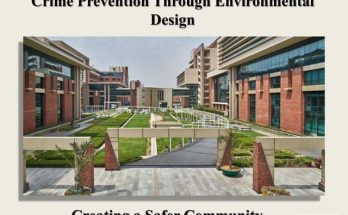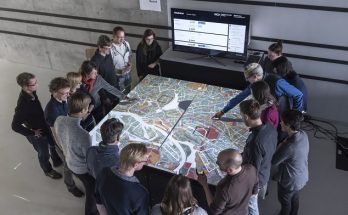Overview:
A planning internship in urban and regional planning provides aspiring planners with the opportunity to gain practical experience and apply theoretical knowledge in real-world settings. Internships bridge the gap between classroom learning and professional practice, offering insights into the complexities of planning processes, community engagement, and policy implementation.

Significance:
Internships are crucial for students and early-career professionals as they:
- Enhance Employability: Gaining hands-on experience makes candidates more attractive to potential employers.
- Skill Development: Interns develop essential skills such as project management, data analysis, GIS mapping, and effective communication.
- Professional Networking: Internships facilitate connections with experienced planners, industry professionals, and peers, which can be valuable for career advancement.
- Understanding Real-World Challenges: Interns encounter practical challenges and learn to navigate the intricacies of planning projects, regulations, and community dynamics.
Components of a Planning Internship:
Placement and Work Environment:
- Interns are placed in diverse settings, such as city planning departments, private planning firms, transportation agencies, environmental organizations, or community development groups.
- They may work on a variety of projects, including land use planning, transportation planning, environmental impact assessments, urban design, and community development initiatives.
Mentorship and Supervision:
- Interns are typically assigned a mentor or supervisor who provides guidance, feedback, and support.
- Mentors help interns understand organizational goals, navigate professional environments, and develop their planning expertise.
Practical Tasks and Responsibilities:
- Interns may be involved in data collection and analysis, preparing reports, conducting site visits, engaging with stakeholders, and attending planning meetings.
- Specific tasks can include drafting zoning proposals, creating GIS maps, conducting community surveys, and analyzing demographic trends.
Professional Development:
- Internships often include opportunities for professional development, such as attending workshops, seminars, and conferences.
- Interns learn about the latest trends, tools, and techniques in urban and regional planning.
Evaluation and Reflection:
- Interns receive regular feedback from their supervisors to help them improve their performance and understanding.
- Reflective practices, such as journaling or discussion sessions, encourage interns to critically evaluate their experiences and growth.
Benefits of Planning Internships:
Real-World Experience:
- Interns gain exposure to the day-to-day operations of planning organizations and the practical application of planning theories and methods.
Career Insights:
- Internships help students clarify their career interests and goals by exposing them to different planning specializations.
Skill Enhancement:
- Interns develop and refine technical skills (e.g., GIS, AutoCAD) and soft skills (e.g., communication, teamwork).
Job Market Advantage:
- Practical experience gained through internships makes candidates more competitive in the job market.
Challenges:
While internships offer numerous benefits, they also present challenges such as:
- Balancing academic commitments with internship responsibilities.
- Navigating the complexities of professional environments.
- Addressing real-world issues that may not have clear solutions.
Conclusion:
A planning internship is an essential aspect of urban and regional planning education. It provides students with the chance to apply their academic knowledge, hone their professional skills, and gain valuable insights into their future careers. Through practical experience, mentorship, and professional development opportunities, interns become better equipped to contribute meaningfully to the field and tackle the complex challenges that communities face today.



